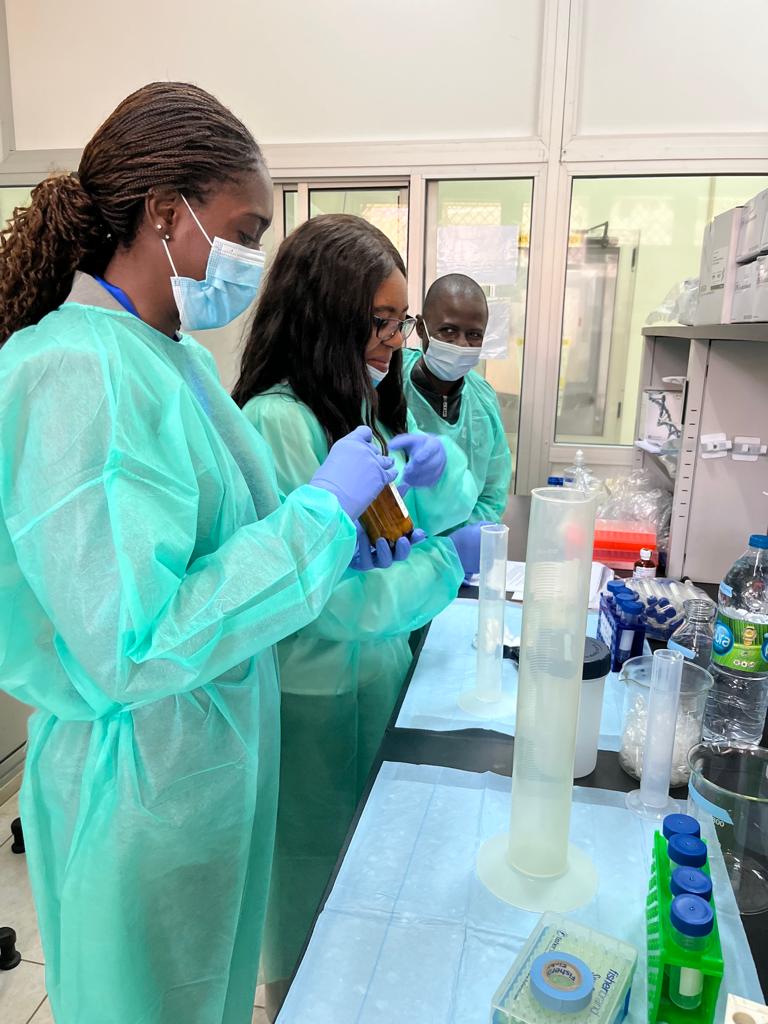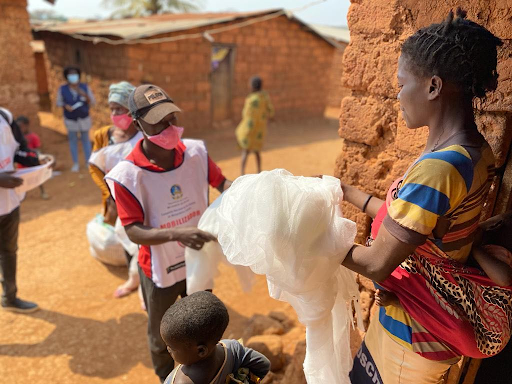“With the right data at our fingertips, we can help better understand malaria transmission in Angola,” says Julio Estobre, a molecular biology laboratory technician at the Instituto Nacional de Investigação em Saúde (National Health Research Institute – INIS).
A year ago, Angola was not yet able to independently conduct laboratory testing on mosquitoes that spread malaria in the country. Angolan scientists, like Julio Estobre, knew that entomological monitoring— monitoring mosquitoes and their behavior— would help the country adapt and respond to changes in local malaria-carrying mosquitos. The National Malaria Control Program (NMCP) could use the data to make better decisions about which tools can best protect people from the spread of malaria and, ultimately, save lives.
Since 2019, the U.S. President’s Malaria Initiative (PMI) VectorLink Project has been working with scientists and laboratory technicians at the INIS and the NMCP to collect and study mosquito samples and conduct routine entomological surveillance. In addition, the team has been monitoring how mosquitoes respond to insecticides used on bed nets to protect people from potentially deadly malaria carrying-mosquitoes.

Julio Estobre, with NMCP technicians Luzala Garcia and Arlete Troco, preparing solutions during the ELISA training session. Photo credit: Rossely Kuango, PMI VectorLink Angola laboratory technician.
To enable the scientists to further develop their analysis skills, PMI provided the equipment needed for laboratory analysis of mosquito samples and organized trainings.
In March 2022, with PMI support, the team hosted an entomologist from the U.S. Centers for Disease Control and Prevention to help conduct the first molecular tests in Angola to identify mosquito species. Later in the year, PMI successfully trained Julio, one of his colleagues from INIS, and three NMCP staff on how to detect infective malaria parasites in mosquito samples.
Malaria is primarily transmitted by Anopheles mosquitoes in Angola. Julio and the other trainees refined old skills and learned new ones, such as how to prepare Anopheles mosquitoes for molecular analysis through dissection and grinding. They also learned a new way to extract mosquito DNA and interpret test results, helping to identify which Anopheles mosquito species are in different areas of Angola. Of the 150 field collected samples tested during the training, seven were positive for the malaria parasite, Plasmodium falciparum.

Net delivery in Uíge province, Angola. Analysis of mosquitoes, including insecticide resistance, can help inform optimal use of malaria prevention tools such as mosquito nets. Photo credit: Alberto Zingany, PSI Angola
With PMI support, Angola has expanded its surveillance capabilities to stay ahead of the ever-evolving mosquito. With this new lab capacity, Julio and the team continue to process samples quickly and accurately. These results will help inform future efforts to control malaria in Angola, to protect lives and support healthy and prosperous communities.
In FY 2022, globally PMI supported 242 sites monitoring insecticide resistance, 63 sites monitoring parasite drug resistance, and 252 sites monitoring mosquito behavior.
Cover Photo: Julio Estobre, laboratory technician at INIS, working with solutions during a training session. Photo credit: Rossely Kuango, PMI VectorLink Angola laboratory technician.
From 2017 to 2023, the PMI VectorLink Project has worked across 25 countries in sub-Saharan Africa as well as Cambodia and Colombia to equip countries to plan and implement safe, cost-effective, and sustainable indoor residual spraying, insecticide-treated net distributions, and other life saving interventions to prevent malaria. PMI VectorLink has also strengthened the capacity of country governments to use data to support the optimal deployment of vector control tools within their country.
